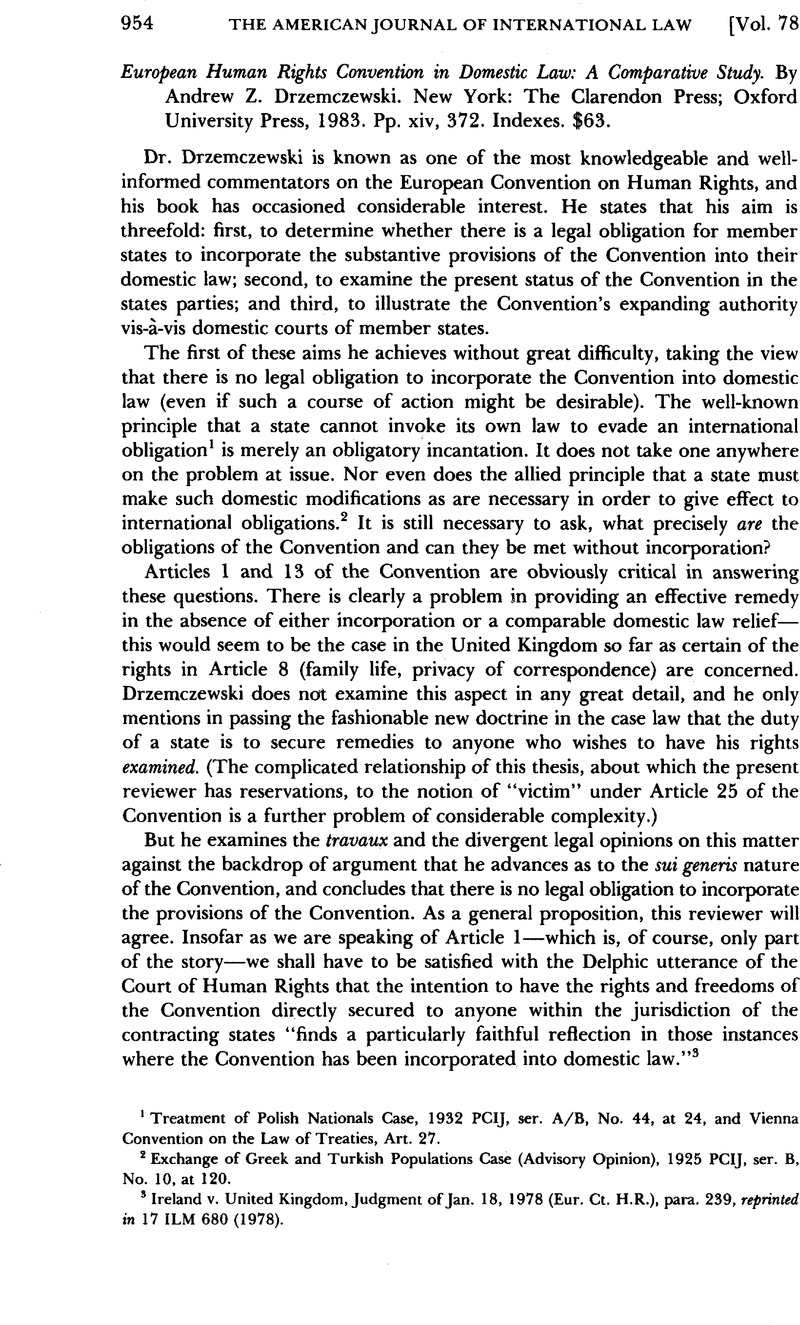No CrossRef data available.
Article contents
European Human Rights Convention in Domestic Law: A Comparative Study. By Andrew Z. Drzemczewski. New York: The Clarendon Press; Oxford University Press, 1983. Pp. xiv, 372. Indexes. $63.
Published online by Cambridge University Press: 16 May 2017
Abstract

- Type
- Book Reviews and Notes
- Information
- Copyright
- Copyright © American Society of International Law 1984
References
1 Treatment of Polish Nationals Case, 1932 PCIJ, ser. A/B, No. 44, at 24, and Vienna Convention on the Law of Treaties, Art. 27.
2 Exchange of Greek and Turkish Populations Case (Advisory Opinion), 1925 PCIJ, ser. B, No. 10, at 120.
3 Ireland v. United Kingdom, Judgment of Jan. 18, 1978 (Eur. Ct. H.R.), para. 239, reprinted in 17 ILM 680(1978).
4 Duffy, , English Law and the European Convention on Human Rights, 29 Int’l & Comp. L.Q. 583 (1980)CrossRefGoogle Scholar.
5 But to elevate one’s disagreement with a proposal briefly made, to a central criticism of the book, seems wholly inappropriate. Cf. Muchlinski’s review of this book in his essay, Improving the Protection of Human Rights, 47 Mod. L. Rev. 240 (1984). Muchlinski suggests that the European Convention cannot be looked at separately from other methods of promoting human rights. While, as a general proposition this is surely right, it cannot mean that an author is to be criticized for choosing to write in detail about a particular regional institution for human rights. His comment that Drzemczewski suggests that the lawyer should not trouble himself with broader, interdisciplinary issues raised by his research is totally unfounded. Drzemczewski neither says nor implies any such thing.


